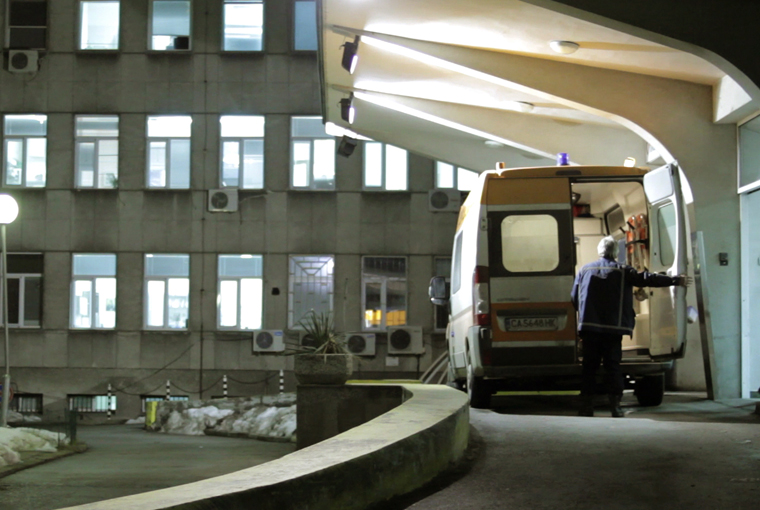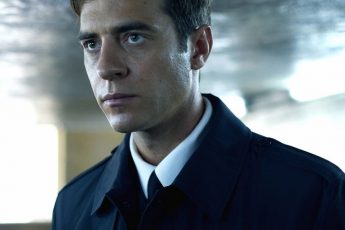On Duty
Ilian Metev’s Sofia’s Last Ambulance (Poslednata Lineika na Sofia, 2012)
Vol. 17 (May 2012) by Konstanty Kuzma
Sofia, Bulgaria’s capital, serves its 1,2 million citizens with a mere 13 ambulances. The consequences of this blatant deficit are sad, but logical: trying to answer an array of emergency calls in and around the city, the ambulance is constantly dragging behind the unrealizable schedule, normally arriving long after the help is needed most. Metev followed one of these ambulances over the course of 2 years. Equipped with 5 cameras and a sound assistant, he accompanied the team on every case they went to, documenting the calls from beginning to end. The product is a touching, insightful look into the daily routine of people who are asked to patch too many holes with too few hands. The film, like many documentaries, is primarily made worthwhile thanks to its protagonists – Krassi, Mila and Plamen (two doctors and their driver)-, an entertaining trio whose mood, like that of the film, seems as bumpy as the streets of Sofia. The film alters between scenes of ordinary existence (one time, Krassi – the mellow, white-haired team leader-, climbs on a tree near the road to pick a few apples), and ones where Krassi and Mila must deal with utterly sad cases, like a drug addict who passes out high at his place two weeks after being released from the rehab. All this is shot “on location”, with the patients carefully framed out, and Krassi, Mila and Palmen appearing to be completely indifferent to the presence of the camera.
Viewers who are familiar with Eastern European films may look further North, towards Romania, when seeing Metev’s debut feature. Indeed, one is reminded of Cristi Puiu’s The Death of Mr. Lazarescu. Though a fiction film, Puiu’s piece deals with the Romanian health care system in the same fashion: through observation. Still, Metev settled on the documentary genre, and it is true that his film is closer to a threefold portrait than it is to a “propositional” film. In fact, the only real problem of his film is that he is overly eager on taking a stab at the Bulgarian healthcare system, for instance by editing in a side note by Plamen who calls it “the end of this country”, or by ending on a tragic note à la The Death of Mr. Lazarescu (which also gives the film an unintentional fictional feeling). Though undoubtedly, the Bulgarian healthcare system deserves this criticism, it is at odds with the film’s observational pretense. In the end, Metev sacrifices the film’s stylistic integrity to get across a message that is all too obvious. Sometimes, it is better to let the images speak for themselves.




Leave a Comment